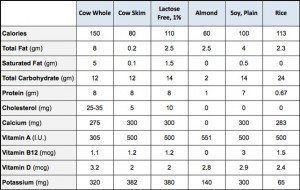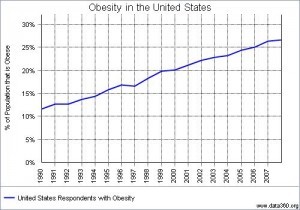Do you eat healthily? If so, what is it that you do that makes your diet healthy?For some people this could mean eating more fruits and vegetables. For others it could mean limiting processed foods, sugar, liquid calories or alcohol. Sometimes we can think of healthy eating as limiting snacking and low nutrition foods. Or it could be an effort to eat more protein,or breakfast. Maybe it's an effort to eat more protein at breakfast.This conversation could take on a number of different angles. And because it has to do with nutrition this can almost become a theology, or a religion, for some.Consider the follow:'I believe in intermittent fasting'or'I believe in eating low-fat'These statements don't reference the science or evidence from research. Instead nutritional lifestyles are based on a belief system which may or may not have the support of science.Recently meatless products have appeared on the menus of fast food establishments. This will obviously appeal to the vegan and vegetarian crowds. Plus there will be some omnivores that will be curious to try a Beyond Meat burger.My question would be why?These burgers are marketed on the basis that it is important to reduce our consumption of red meat. And for those that are looking to be healthier but still satisfy their craving for a burger they can have the best of both worlds. Less red meat and a healthier alternative.But is this the case?Because there are, at minimum, two separate issues here.A. The first is that eating less red meat is healthier for you. There may be some truth to this but we'd need more details. Who is the individual we're talking about? How old are they? How active are they? What are their goals? How much red meat do they already eat? What else do they eat? What is...
8 Takeaways from Dr. Kleiner
- Chris Collins
- Nutrition Advice
- 1880 Hits
- 0 Comments
-
Last weekend we had the pleasure of hosting Dr Susan Kleiner for a day of nutritional lectures. Dr. Kleiner is the author of seven books including Power Eating & The Good Mood Diet. Below is a quick recap of some of the takeaways from these lectures. #1 - Never StudiesThere are a number of myths circulated in gyms and training circles that just aren't supported in the research. For example, there are people who believe they should throw away the egg yolk as this raises blood cholesterol. There has never been a study linking the consumption of egg yolks with increased blood cholesterol. Hopefully anyone ditching the yolk will stop and reap the rewards of the nutrition contained within the whole egg. #2 - How to See Your InflammationDo you live with inflammation? I don't mean the acute type Megan and Kayla are known to display after they play basketball and sprain an ankle. I mean the day in day out type of inflammation that you live with otherwise known as chronic inflammation. Sometimes this is hard to tell the state of our cells without having some medical tests done. Another quick way to tell if you are in a state of inflammation is to look at your gums in your mouth. Are they red, swollen and potentially receding? If so, this is an indication of inflammation of the gums and is most likely not limited solely to your oral health. While you could take an NSAID (non-steroidal anti-inflammatory drug) like ibuprofen another option would be to supplement with extra virgin olive oil. This has equivalent anti-inflammatory properties without the side effects associated with NSAIDs. #3 - Put Sugar on the TableWhoa! Hold on now. Are you kidding me? Isn't added sugar one of the biggest nutritional problems people are facing?...
What type of milk to drink
- Chris Collins
- Fitness
- Nutrition Advice
- 1955 Hits
- 0 Comments
-
Do you drink milk? That's a pretty easy question because it doesn't specify what kind of milk? Most people assume you mean cow's milk but nowadays that question can be open to interpretation as the regular variety or one of rice, almond or soy. So what's the difference between the different types of milk? And more importantly is there one type that you should be drinking? Below is a table that summarizes the key nutritional differences between the various types of milk. Let's take a look at each. [caption id="attachment_3527" align="alignleft" width="300"] Nutritional data of different kinds of milk Almond MilkThis is made by crushing almonds with water and as it is not produced with animal products it has little to no saturated fat or cholesterol. Compared to cow's milk it has as little as 40% of the calories and does not contain the sugar lactose. However when drinking almond milk you lose much of the protein, calcium and vitamin B12 found in cow's milk. Soy MilkThis milk is made with soybeans and water and is also produced without animal products therefore is has little saturated fat and no cholesterol. In terms of calories it is comparable to some forms of cow's milk and is almost double the energy of almond milk. In terms of the protein content soy has slightly less than cow's milk and is comparable in terms of the vitamin and mineral content. Rice MilkAny guesses how rice milk is produced? As with the other two varieties it is made by combining rice (usually brown) with water. Since this form of milk is made from a starch it has a higher carbohydrate content and the highest calorie content of non-dairy types of milk. Again as with the other 2 non-dairy varieties this is a non-animal form of milk so the...
More Reasons to Reduce Your Sugar Intake
- Chris Collins
- Nutrition Advice
- 1707 Hits
- 4 Comments
-
I remember growing up and my parents were following one of the low fat diets of the day. One of the ones that comes to mind was the Scarsdale Diet. Anyways this diet, and a number of others, recommended that for the best health we needed to reduce our intake of fat. Particularly saturated fat. And so we stopped eating egg yolks. And we cut back on our consumption of animal fat. Or we eliminated animal products altogether and became vegan or vegetarian. By we I mean society in general and not me personally. What have the results been? Obesity has more than doubled in the USA over the last 20 yers. But about our internal health? Have we become sicker as well? Take a look at the graph below which shows the changes in diabetes over the years. And below we can see the increase in sugar consumption over the past 80 plus years. So fat may not be the culprit we thought it was. Sure it has more than double the energy of carbohydrates and protein. But I've tried to drive home the point that a calorie is not a calorie many times before. Any five year will tell you eating 1 lbs of broccoli is not the same as eating 1 lbs of cotton candy. However many still cling to the belief that a caloric deficit is all that is needed to drop unwanted bodyfat fat. But is sugar really that bad? Consider the following research just coming out. Dr. Cantley, a cell biologist and biochemist, has recently shown that cancer cells have insulin receptors just as muscle, fat and liver cells do. So when we eat sugar these receptors are able to receive the sugar flowing through our blood and supply the energy to grow the tumour. And it appears the...

